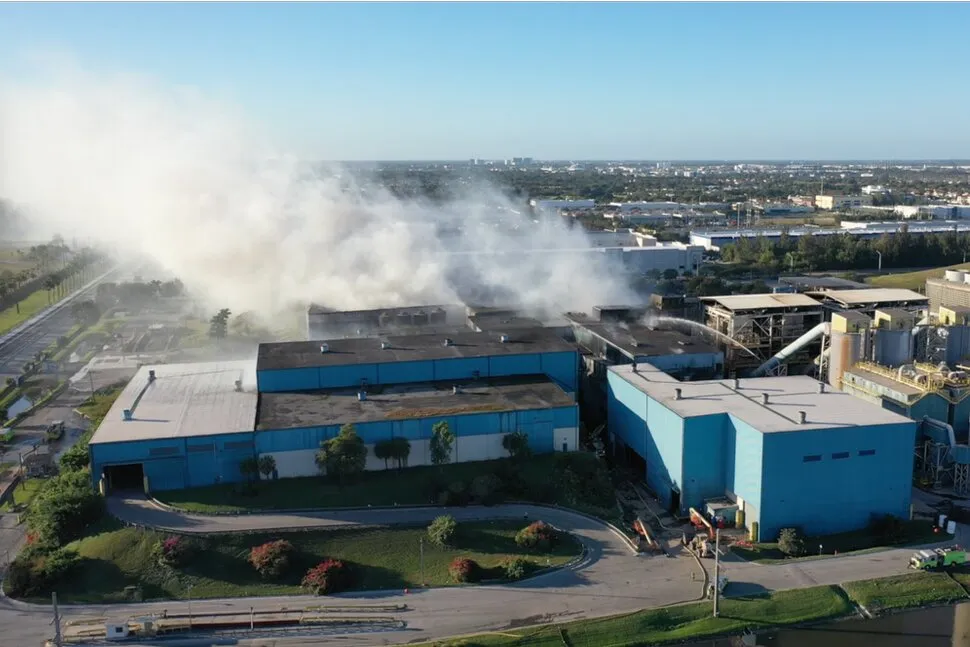- Last Year’s Platinum-Based Drugs Shortage Didn’t Raise Cancer Deaths, Study Found
In an era of advanced medical treatments and innovations, the global shortage of certain life-saving drugs can create serious concerns for patients and healthcare professionals alike. One of the most critical shortages in recent times has been that of platinum-based chemotherapy drugs, a class of medications essential for the treatment of various cancers, including testicular, ovarian, and lung cancers. These drugs, which include cisplatin and carboplatin, have long been a cornerstone of cancer treatment. They work by interfering with the DNA of cancer cells, preventing them from dividing and spreading, and they have saved countless lives over the years.
However, in the past year, many healthcare systems around the world faced a significant shortage of platinum-based drugs, raising alarms among oncologists and patients. The shortage was largely due to supply chain disruptions, manufacturing delays, and increased demand for cancer treatments. Despite the fears and concerns surrounding this shortage, a recent study has offered surprising findings: the shortage did not lead to a significant increase in cancer-related deaths. In fact, cancer mortality rates remained relatively stable, despite the reduced availability of platinum-based chemotherapy drugs.
This article delves into the details of the study that explored the impact of the platinum-based drug shortage on cancer mortality, examining why the expected rise in cancer deaths did not occur, what alternatives were used in place of these drugs, and what this means for the future of cancer treatment. The study’s findings are crucial for understanding the resilience of cancer treatment protocols, as well as the potential for alternative therapies to take the place of traditional drugs in critical times of need.
The Importance of Platinum-Based Chemotherapy Drugs
Platinum-based chemotherapy drugs are essential in the treatment of several types of cancer, particularly for solid tumors such as those affecting the lungs, ovaries, and testicles. Cisplatin, carboplatin, and oxaliplatin are the three most common platinum-based drugs used in clinical practice. These drugs work by forming platinum-DNA adducts, which damage the cancer cell’s DNA and interfere with its ability to replicate. In doing so, they prevent the growth and spread of tumors, contributing to the overall treatment of many cancer patients.
The effectiveness of platinum-based drugs is well-established, and they are often part of combination chemotherapy regimens that include other drugs to maximize their impact. These drugs are particularly important in the treatment of cancers that are resistant to other forms of chemotherapy, offering hope to patients who otherwise have limited options.
Despite their success, the production and distribution of platinum-based drugs are not without challenges. The manufacturing process for these drugs is complex and requires specialized facilities and high-quality raw materials. Over the years, supply chain issues, regulatory hurdles, and shortages of key ingredients have led to intermittent disruptions in the availability of these drugs. The most recent shortage, which occurred last year, raised concerns that patients could face delays or reductions in their cancer treatments, leading to worse outcomes and possibly more deaths.
The Platinum-Based Drug Shortage: Causes and Concerns
The shortage of platinum-based chemotherapy drugs in recent years was caused by a combination of factors. First and foremost, the COVID-19 pandemic disrupted global supply chains, affecting the manufacturing and distribution of many medical products, including chemotherapy drugs. Restrictions on international trade, labor shortages, and delays in the production of essential components all contributed to the reduced availability of platinum-based drugs.
Additionally, there was an increased demand for cancer treatments worldwide, as more patients sought care after the delays caused by the pandemic’s initial wave. This higher demand, coupled with manufacturing bottlenecks and regulatory issues in the production process, created a perfect storm that led to the shortage of these critical drugs.
The shortage left oncologists with difficult decisions to make. With limited supplies of cisplatin and carboplatin, many healthcare systems were forced to ration the drugs, prioritizing patients with more advanced or aggressive cancers. This led to concerns that patients who were unable to receive their full chemotherapy regimens would experience worse outcomes, including higher mortality rates. For many, the shortage posed a serious threat to their treatment plans, making it a critical issue for the global medical community.
The Study: An Unexpected Outcome
Despite the widespread concerns about the shortage’s impact on cancer survival rates, a comprehensive study published in a major medical journal offered an unexpected conclusion. The research, which tracked cancer mortality rates during the period of the platinum-based drug shortage, found that cancer deaths did not significantly rise as a result of the limited availability of cisplatin and carboplatin.
The study included data from several countries that experienced the shortage, comparing cancer mortality rates from the year of the shortage with previous years. The researchers looked at death rates for cancers commonly treated with platinum-based drugs, such as ovarian, testicular, and non-small cell lung cancer, and found that mortality rates remained largely stable.
One of the key reasons behind this surprising finding was the ability of oncologists to quickly adapt to the shortage. Faced with limited access to platinum-based drugs, many healthcare providers turned to alternative treatments, including other chemotherapy agents, targeted therapies, and immunotherapies. These alternatives, while not as effective in all cases as platinum-based drugs, proved to be valuable in maintaining treatment regimens for patients.
Alternative Treatments and Strategies
During the shortage, healthcare systems and oncologists were forced to get creative with their treatment plans. Platinum-based chemotherapy drugs have long been the standard of care for many cancers, but a variety of other therapies exist that can provide similar benefits in certain cases.
One of the most notable alternatives to platinum-based chemotherapy is the use of taxanes, such as paclitaxel and docetaxel. These drugs work by inhibiting the growth and division of cancer cells, similar to platinum-based drugs, and they are often used in combination with other agents for a more comprehensive approach. Taxanes are commonly used in the treatment of breast cancer, ovarian cancer, and lung cancer.
Additionally, targeted therapies such as bevacizumab (Avastin) and immunotherapies like pembrolizumab (Keytruda) have been increasingly used in the treatment of cancers like non-small cell lung cancer, ovarian cancer, and melanoma. These therapies work by targeting specific molecules or pathways involved in cancer cell growth and survival, offering a more personalized treatment option.
In some cases, oncologists were able to utilize other chemotherapy drugs that work through different mechanisms than platinum-based drugs. For example, fluorouracil (5-FU) is often used in combination with other agents for the treatment of colorectal, gastric, and breast cancers.
While these alternative treatments were not always as effective as platinum-based drugs for specific cancers, they provided a viable solution for maintaining cancer treatment during the shortage. Moreover, many patients were able to tolerate these drugs better than platinum-based chemotherapy, reducing the risk of severe side effects and improving overall quality of life during treatment.
Why Cancer Death Rates Remained Stable
The study’s findings suggest that the impact of the platinum-based drug shortage on cancer death rates was not as severe as initially feared. Several factors contributed to this outcome:
- Alternative Therapies: As mentioned earlier, oncologists were able to adapt quickly to the shortage by using alternative treatments. While platinum-based drugs are often the first choice for many cancers, other therapies have been proven to be effective in treating the same types of cancer. In some cases, patients were even able to switch to newer, more advanced treatments like immunotherapies and targeted therapies, which can offer better outcomes.
- Improved Cancer Detection: Advances in early cancer detection have played a key role in improving survival rates. As screening techniques become more accurate and accessible, many cancers are diagnosed at earlier stages, when they are more treatable. This may have helped offset the impact of the drug shortage, as earlier-stage cancers are often more responsive to treatment.
- Better Supportive Care: The overall standard of cancer care has improved in recent years, with better management of side effects, improved pain control, and more personalized treatment approaches. These improvements have contributed to better overall survival rates, even in the face of treatment disruptions.
- Resilient Healthcare Systems: Many healthcare systems were able to adapt quickly to the shortage, managing to provide the best available treatments to patients despite the supply issues. Doctors and hospitals worked together to prioritize the most critical cases and find alternative solutions, reducing the potential for worse outcomes.
A Silver Lining in a Time of Shortage
The study’s findings offer a silver lining in the midst of what was a challenging time for both healthcare providers and cancer patients. While the shortage of platinum-based chemotherapy drugs caused significant concern, the adaptation of cancer treatment protocols, the availability of alternative therapies, and the overall resilience of healthcare systems helped to mitigate the potential negative impact on cancer mortality rates.
However, the shortage also highlights the importance of securing reliable access to life-saving medications and ensuring that healthcare systems are prepared for unexpected disruptions in drug supply chains. It also underscores the need for continued research into alternative cancer treatments that can help provide effective options when traditional therapies are unavailable.
As the world continues to grapple with healthcare challenges, this study serves as a reminder of the importance of adaptability, innovation, and the ongoing pursuit of better treatments for all patients.























